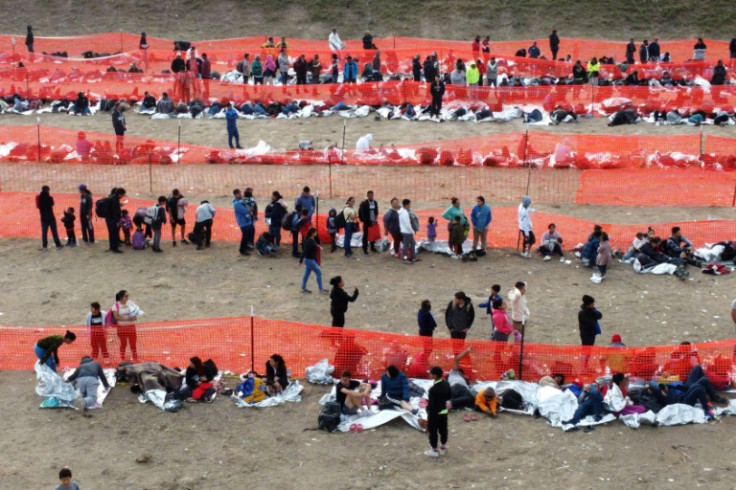
Texas' Operation Lone Star, aimed at curbing unlawful migration, has led to an increase in allegations of excessive use of force and human rights violations by law enforcement, according to a new report.
The document, by the Washington Office on Latin America (WOLA) says the situation has deteriorated to an extent that federal intervention is necessary. To back its claim, it describes a "troubling new pattern of force" and lists reported incidents of abuse, as well as the fact that it sets a "dangerous precedent for U.S. Civil-Military relations."
Reports from the Texas-Mexico border, particularly in areas such as Eagle Pass and El Paso, describe actions by Texas National Guard troops and police that involve firing projectiles at unarmed migrants and pushing individuals back across the border. WOLA's Adam Isacson and Ana Lucia Verduzco argue that such practices violate both U.S. and international standards for law enforcement and pose risks for civil-military relations. Many of those targeted by these operations are migrants seeking asylum, including families with children.
Operation Lone Star has been costly, with over $11 billion allocated from state funds. It has involved the deployment of thousands of state police officers and National Guard personnel, the construction of new border barriers, and the busing of over 119,000 migrants to cities governed by Democratic officials. These measures, however, have not significantly altered migration patterns in Texas compared to other border states, they say.
The most disturbing aspect of OLS, they say, is the escalation of force used by Texas forces since mid-2023. Incidents involving "less-than-lethal" weapons like rubber bullets, pepper balls, and tear gas have been recorded, often aimed at migrants who pose no immediate threat. Some of these incidents have occurred on the Mexican side of the border or within a few yards of the U.S. side, where migrants are separated from Texas forces by layers of concertina wire.
Notable instances of abuse include an August 2024 case in Eagle Pass where tear gas was fired at a group of Venezuelan migrants, including children. Other reports have documented physical abuse, verbal threats, and migrants being forcibly pushed back into Mexico. In several cases, migrants have been injured by razor wire or denied access to basic necessities like water in extreme heat, the report adds.
Despite these claims, official investigations into these incidents have been limited. WOLA calls for federal oversight, urging the Department of Justice to investigate use-of-force violations under OLS. The organization argues that current practices disregard best practices for de-escalation and crowd management, leading to unnecessary confrontations. Furthermore, it warns that the use of military personnel in civilian law enforcement roles sets a dangerous precedent for U.S. civil-military relations.
In some instances, Texas National Guard troops have discharged firearms at civilians, including a January 2023 incident in which a guardsman shot and wounded a migrant. These cases highlight concerns about the inappropriate use of military personnel in a law enforcement capacity, which contradicts longstanding U.S. norms against military involvement in civilian matters.
While the number of reported use-of-force incidents has decreased since mid-2024, a parallel crisis has unfolded in the nearby desert. Migrant deaths in the El Paso sector have reached record levels, largely due to heat exhaustion and dehydration as individuals attempt to bypass fortified border areas. Critics argue that both state and federal border policies contribute to these fatalities, calling for a reassessment of the broader U.S. approach to migration.
The situation remains a pressing human rights issue, with the report's authors calling for immediate federal intervention to address the reported abuses and ensure accountability. They give four reasons for this: excessive force violates U.S. law enforcement standards, pushbacks violate international law, the fact that forces ignore best practices for de-escalation, and the misuse of military personnel.
© 2024 Latin Times. All rights reserved. Do not reproduce without permission.










